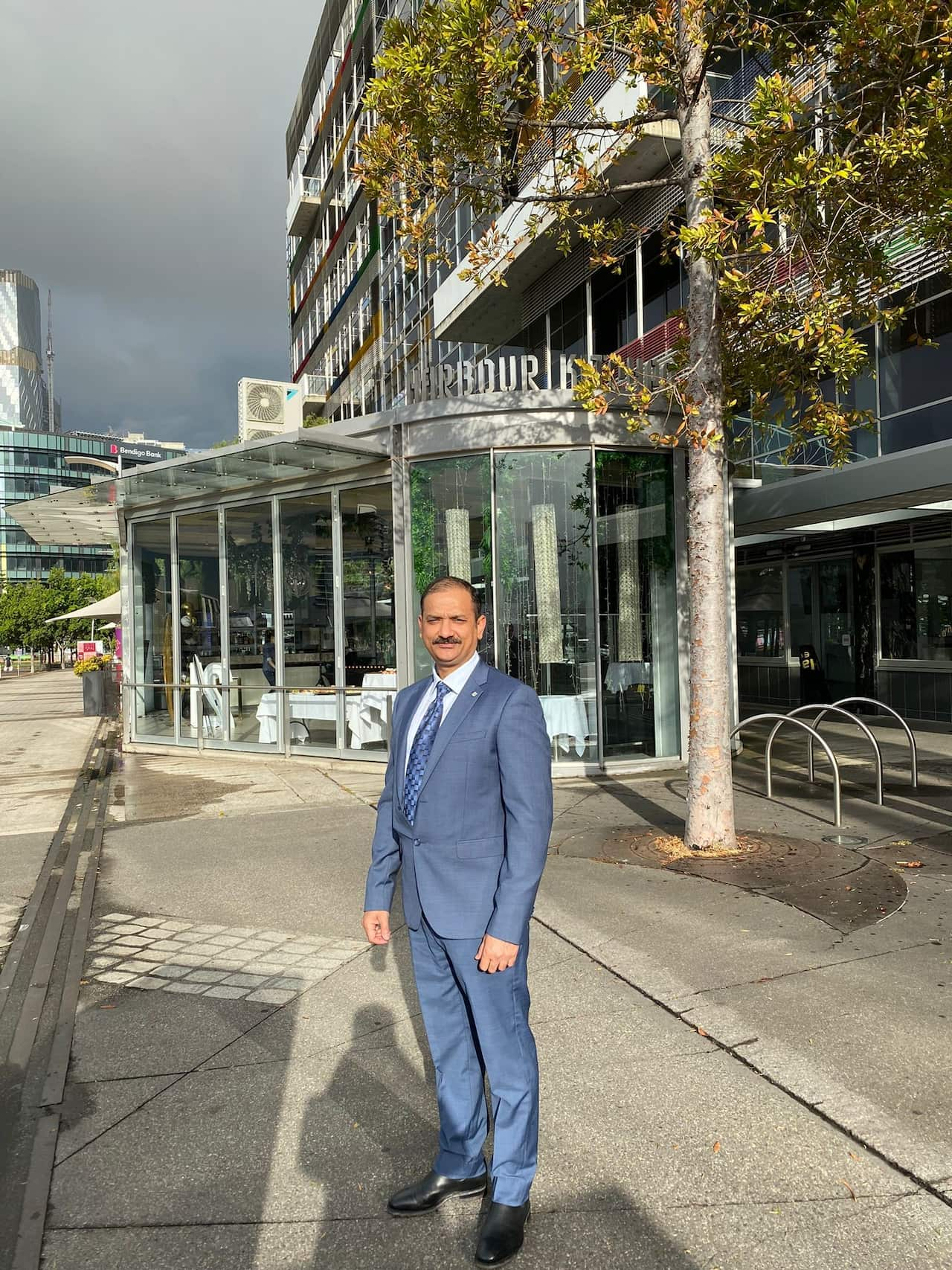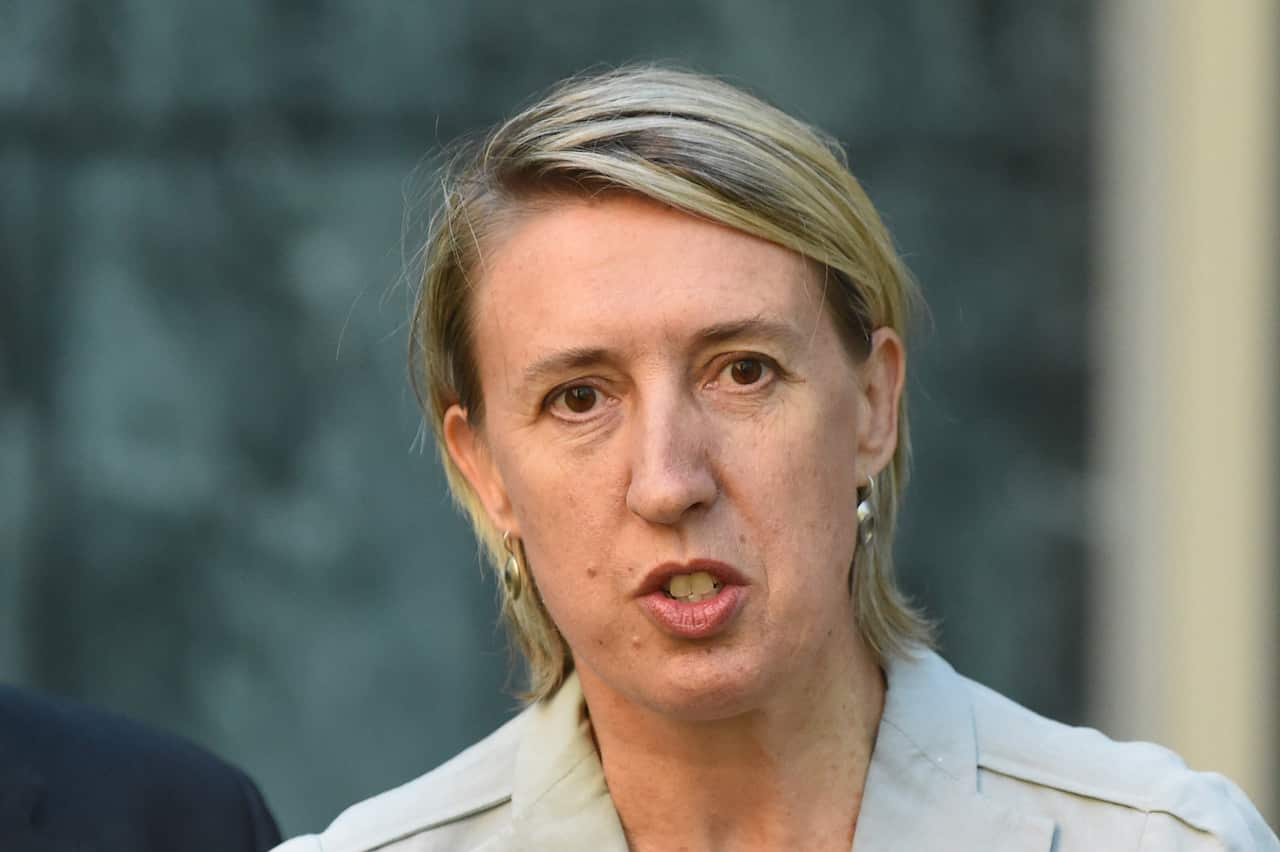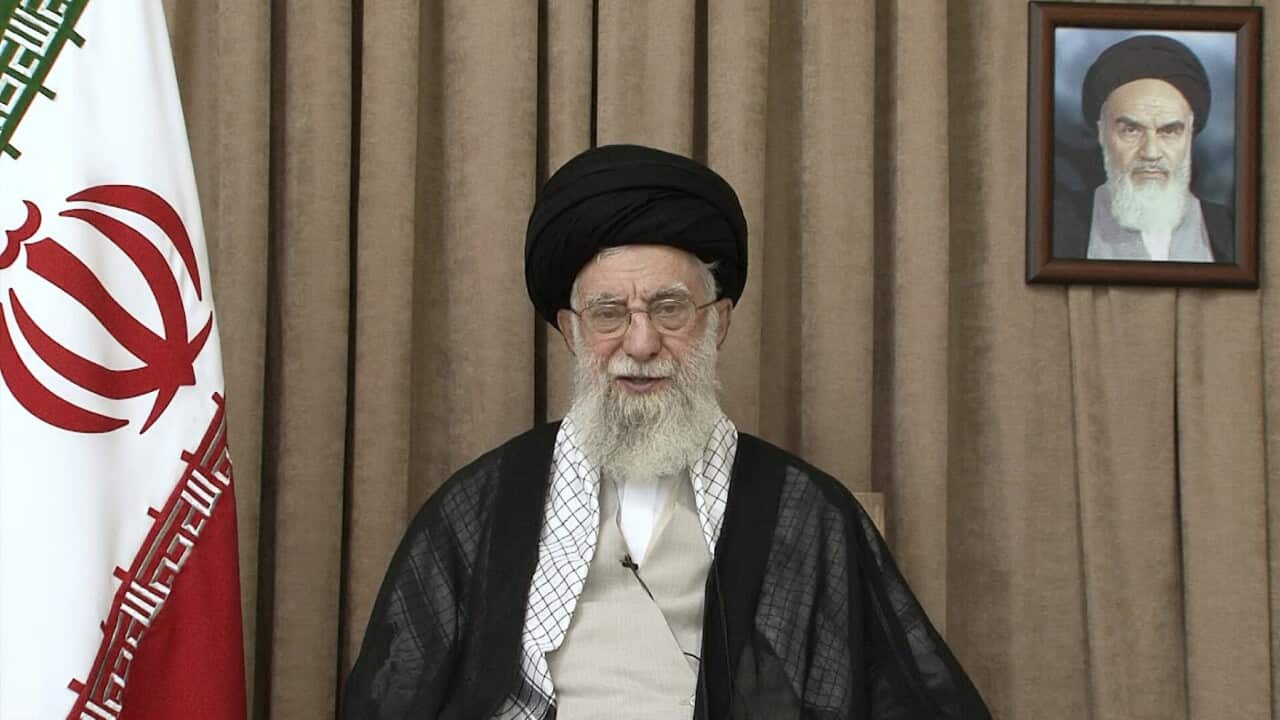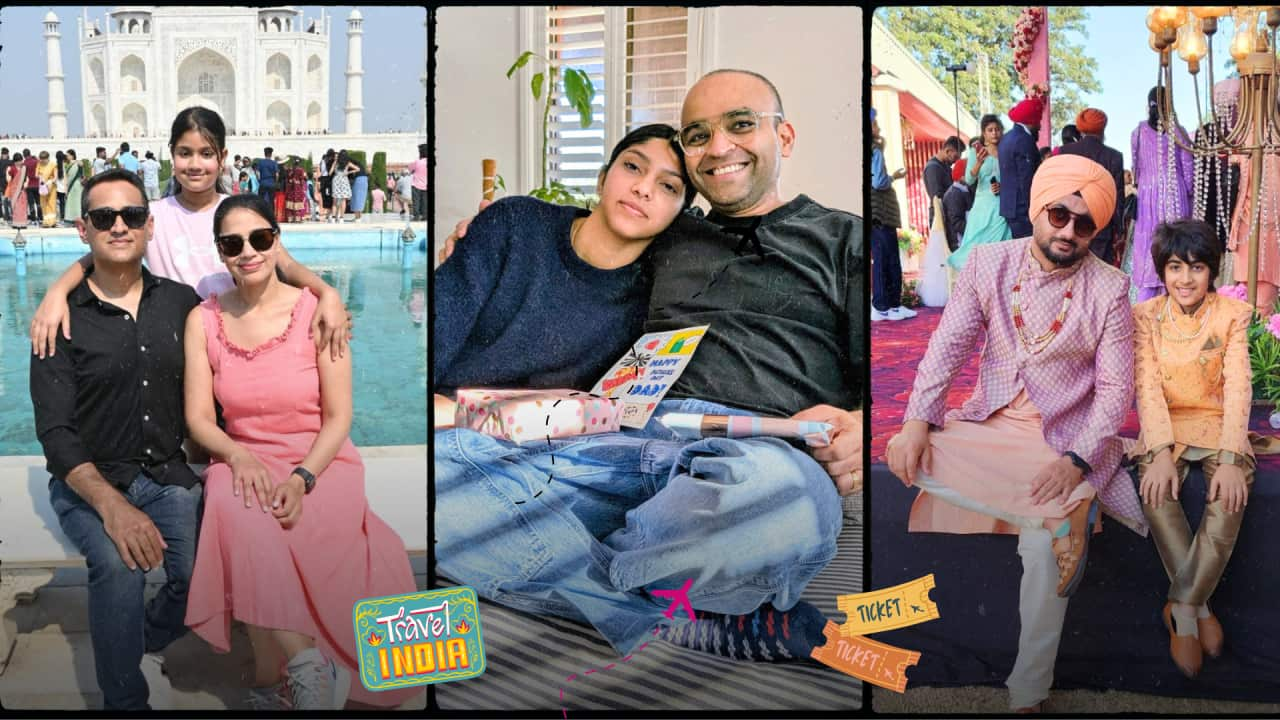Over the past two decades, Jatinder Bhagat says he has devoted himself to direct caregiving.
Mr Bhagat says he never imagined he would one day become a nurse, and had no idea what nursing entailed.
But as he looks back, he says he feels his path into the profession was almost 'pre-ordained'.

Jatinder Bhagat, ICU's Nurse Manager at the Casey Hospital. Credit: Mr Jatinder Bhagat
"After moving to Australia, I again looked at several career options. Initially, I thought of working with the police but I soon realised that it was very different here," Mr Bhagat said.
"I wanted to challenge myself and the only thing that scared me as a kid was science, so I decided to take up nursing."
In his youth, Mr Bhagat says he always wanted to pursue medicine as a profession, but was not able to do so.
Having completed a Bachelor's degree and Master's in nursing from Deakin University, Mr Bhagat started working as a floor nurse. Within three years, he was promoted into management roles.
"Currently, I work in Casey Hospital's Intensive Care Unit (ICU) as a nurse manager. And, every single time I walk through the hospital entrance, I get this great sense of pride," he said.

Men make up almost 12 per cent of the Australian nursing workforce. Credit: FatCamera/Getty Images
"In the past, people have asked me why I chose to become a nurse or why I didn't think of getting into business here, but I love my work and I am very passionate about it.
"It's a rewarding career. It gives you a lot of opportunity to grow. If you're passionate about your work, you can achieve a lot."
Generally speaking, many young boys or men don’t even consider nursing because of the old stereotype of ‘men are doctors and women are nurses'.Jatinder Bhagat
The need for nurses in Australia
Nursing has overtaken building as the third-most common non-school qualification in Australia, behind business and management and teacher education.
There are an additional 96,000 people with a nursing qualification, representing a 19 per cent increase from 2016. Females hold 91 per cent of nursing qualifications.
“Census data shows over 40 per cent of registered nurses and aged and disability carers were born overseas, with almost 40,000 arriving since 2016. A 40 per cent share born overseas is significantly higher than the average across all occupations of 32 per cent born overseas,” Dr David Gruen AO, Chief Statistician with the Australian Bureau of Statistics (ABS), said.”
While females made up the majority of people employed as registered nurses (88 per cent) and aged and disability carers (77 per cent), the share of males working in these roles has increased slightly since 2016.
In 2021, 12 per cent of registered nurses were males, compared to 11 per cent in 2016. For aged and disability carers, the percentage of males increased to 23 per cent from 20 per cent.
According to the Australian Nursing and Midwifery Journal, the median weekly income for full-time, male Registered Nurses is $1,802 compared to $1,631 for females.
Last year, Universities Australia's Chief Executive Catriona Jackson said that modelling of Australia’s future workforce showed demand for nurses, in particular, was expected to exceed supply, with a projected shortfall of 85,000 nurses by 2025.

Universities Australia's Chief Executive Catriona Jackson. Source: AAP / MICK TSIKAS/AAPIMAGE
Mr Bhagat echoes similar sentiments by saying the severity of the nursing shortage is well known now, especially after the COVID-19 pandemic.
"COVID has changed everything. And today it has also made more and more people aware of how stable the nursing profession has become, as well as the array of opportunities that it offers," Mr Bhagat said.
He further notes that the perception of nursing as a career choice for men has significantly changed over the past few years.
He says that in his opinion, it would be beneficial for both the country and society in general if more men entered the nursing profession, however achieving that goal would take a strong effort from the ground up.
"The possibilities are endless. A profession can offer a lot to an individual, but it is up to them to take advantage of it," Mr Bhagat said.




